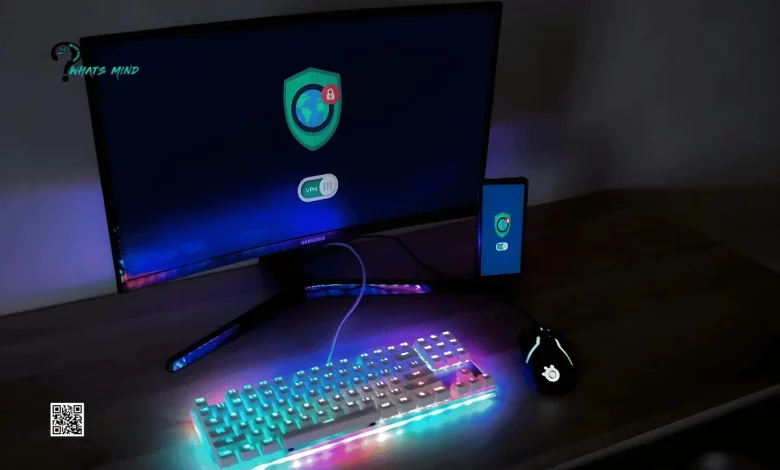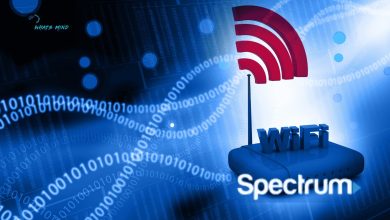How Does a VPN Level Up Your Windows Experience?

Virtual Private Networks (VPNs) have transitioned from a niche tech concept to a mainstream sensation. No doubt, you’ve noticed influencers and podcast hosts extolling their virtues, with VPNs even claiming the spotlight in Superbowl commercials.
As promises of online anonymity and unblocked streaming services dance before our eyes, it’s worth dissecting the reality behind the fanfare. To assist you in navigating the VPN landscape, we’ve compiled a list of uses of VPN options. Perhaps you will find any of the above a worthy reason to start using a VPN.
Table of Contents
#1 Safely Using Public Wi-Fi Networks
Your internet activity is unprotected and could easily be intercepted, as unencrypted signals are vulnerable to eavesdropping. Your device may inadvertently become the target of malware circulating through the coffee shop’s network, transmitted via the communal router.
That “free Wi-Fi” could very well be a facade – a deceitful hotspot designed to snare you in a phishing scheme. Keep in mind, too, that even legitimate, free public Wi-Fi services often require personal details for access. Submitting such information compromises your privacy and could lead to unwanted tracking.
#2 Prevent ISP Tracking
Are you aware that your online activities are constantly being monitored? Your internet service provider (ISP) records a myriad of your digital footprints, this includes your emails, search queries, and the websites you browse.
However, there’s a solution to safeguard your privacy: a Virtual Private Network (VPN). By activating a VPN, your internet data becomes encrypted, shielding your actions from the prying eyes of ISPs.
#3 Protect Against Malware
Numerous VPN providers claim to offer some level of defense against harmful content. Often, this involves rudimentary safeguards against recognized dangerous websites and files. Beyond this, certain VPNs incorporate specialized antivirus features, while a few antivirus brands have stepped into the VPN market as well.
You may well find a VPN for computers with virus protection. If we are talking about the best VPN for Windows PC, then such a function should be required. When looking for the perfect VPN for PC download, you should look for all the security features. For example, VeePN has about 10 of them. This PC VPN can protect against viruses, phishing, infected software, DDoS attacks, IP and DNS address disclosure, as well as several other vulnerabilities.
#4 Bypass Geographic Restrictions
Are you eager to access BBC iPlayer or stream the newest releases on Netflix USA, no matter where you are on the globe? Geographic blocks might be stopping you, but there’s a workaround that has nothing to do with sluggish browser proxies, notoriously slow for streaming.
By choosing to use a VPN, you get to select a server that appears “local” to the desired streaming service. With a VPN, your online presence can virtually shift to another country, bypassing sandy location restrictions.
Imagine connecting to a server in London from your New York living room and watching Doctor Who on BBC iPlayer right when it’s broadcast. VPNs offer an abundance of servers worldwide, ensuring secure connections and smooth data transfer for an uninterrupted streaming experience.
#5 Hide Your Torrenting and Online Activity
Using a Virtual Private Network (VPN) helps to secure your internet connection by encrypting all outgoing traffic. This encryption ensures that Internet Service Providers (ISPs) are unable to track the websites you visit or monitor your file transfers.

It’s important to note, however, that despite the privacy afforded by VPNs, significant bandwidth usage can still raise flags with your ISP. Excessive data consumption may breach the terms of service of your internet agreement.
Additionally, engaging in the unauthorized downloading or distribution of copyrighted material, often referred to as torrenting, might not only break the rules set by your ISP but also those stipulated by your VPN provider.
#6 Make Remote Work Safer
For those embracing the remote work lifestyle, the flexibility of changing your work environment is common. You might find yourself analyzing data on your cozy living room sofa one day, and the next, you’re drafting up content amidst the buzz of your neighborhood café.
However, with the convenience of shifting workspaces comes the potential risk associated with frequent use of public Wi-Fi networks.
We’ve touched on this topic previously: public networks can be a gateway for breaches in personal security. The implications for corporate data are even more significant; a security lapse could grant cyber attackers access to sensitive company information, potentially resulting in a serious compromise of workplace data security.
Conclusion
To be honest, these are not all the reasons that can force you to use a VPN. This also includes the possibility of changing the location on social networks or the option of saving on online purchases when booking tickets and rooms. But now you are familiar with the main reasons to use a VPN.
For more information, visit Whatsmind.com




